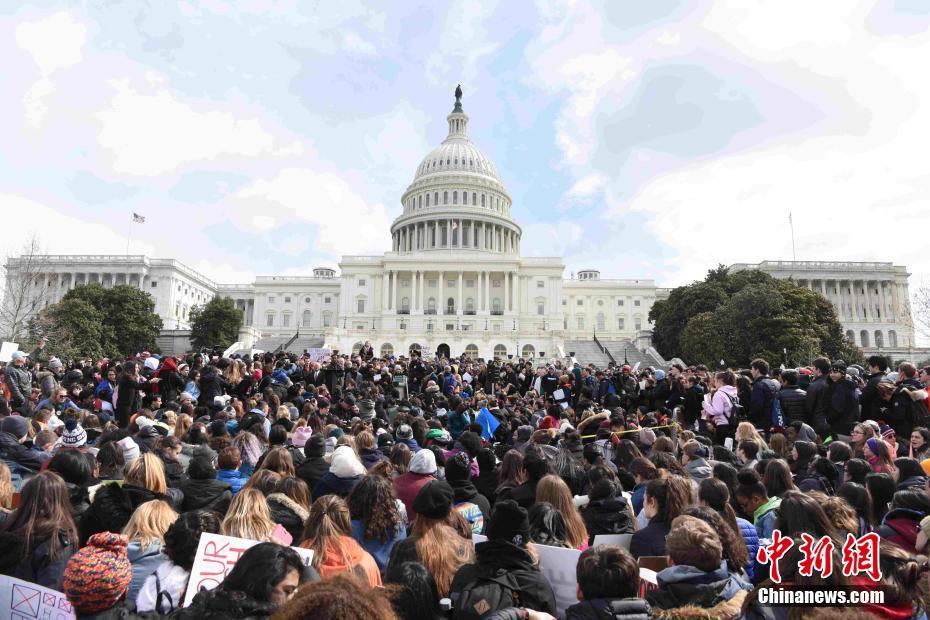
1. The failure of the temperature sensor or temperature regulator; the reason for the buzzing of the car at low speed or variable speed is that the gap between the piston and the cylinder wall is too large; the buzzing at high speed is caused by the sound Caused by vibration. The temperature sensor or temperature regulator has failed.
2. Most of the reasons why the car buzzes at low speed or when changing gears are caused by the excessive gap between the piston and the cylinder wall. During the installation process, when the installation configuration is too tight and there is abnormal wear, there will be a buzzing phenomenon. Another reason is that the engine explodes on the cylinder, which may be caused by early ignition angle or more carbon accumulation in the cylinder.
3. Other reasons: gearbox problems: accelerationThe buzzing sound is not always caused by the engine, and it may also be caused by friction due to the wear of the gearbox bearing and the reduction of lubricant.
4. The car will make a buzzing sound when driving, and speed is the cause of this situation. Among them, the common reasons are as follows: the wheel bearing of the car is worn or loose. The tire was partially worn or eaten. Wheel bearings are one of the most important parts of the vehicle, which can make the wheels run freely.

1. The reason for the buzzing of low-speed or variable-speed cars is the piston and cylinder wall The gap is too big. During the installation process, when the assembly is too tight and there is abnormal wear, there will be buzzing. Another reason is that the engine knocks on the cylinder. The engine knocks on the cylinder in the initial stage, which may be caused by the early ignition angle or the accumulation of more carbon in the cylinder.
2. Most of the reasons why the car buzzes at low speed or when changing gears are caused by the excessive gap between the piston and the cylinder wall. During the installation process, when the installation configuration is too tight and there is abnormal wear, there will be a buzzing phenomenon. Another oneThe reason is that the engine bursts on the cylinder, which may be caused by the early ignition angle or more carbon accumulation in the cylinder.
3. The reason for the engine buzzing: the engine buzzing at idle: it may be the sound made by the work of the electronic fan for water tank heat dissipation, but this sound is indirect. If the buzzing has been there, it may be a malfunction of the temperature sensor or the temperature regulator.
4. The abnormal sound of the bearing is a regular buzzing sound, such as the engine tightening wheel, idler, etc. At this time, the relevant parts need to be replaced. Only by figuring out the real reason for the loud engine noise can we "put the right medicine" and avoid the waste of oil and the increase in vehicle maintenance costs caused by blindly replacing the oil.
5. The temperature sensor or temperature regulator fails;The reason for the buzzing of the car at low speed or in variable speed is caused by the excessive gap between the piston and the cylinder wall; the buzzing in the state of high-speed operation is caused by sound resonance. The temperature sensor or temperature regulator is faulty.
6. What is the reason for the loud buzzing sound of the engine? The temperature sensor or temperature regulator fails; the reason why the car buzzes at low speed or in variable speed is that the gap between the piston and the cylinder wall is too large; the buzzing at high speed is caused by sound resonance. The temperature sensor or temperature regulator has failed.
Most of the reasons for the buzzing sound when the car is low or changing gears are caused by the excessive gap between the piston and the cylinder wall. During the installation process, when the installation configuration is too tight and there is abnormal wear, there will be a buzzing phenomenon.Another reason is that the engine explodes on the cylinder, which may be caused by early ignition angle or more carbon accumulation in the cylinder.
The reason for the loud buzzing of the engine: temperature sensor failure, excessive gap between the piston and cylinder wall, and improper oil selection. Temperature sensor failure Engine buzzing when idling: When the car is idling normally, the buzzing may be caused by the work of the electronic fan in the water tank, but this noise is indirect.
The failure of the temperature sensor or temperature regulator; the reason for the buzzing of the car at low speed or variable speed is caused by the excessive gap between the piston and the cylinder wall; the buzzing at high speed is caused by sound resonance. The temperature sensor or temperature regulator is faulty.
The reason for the buzzing of low-speed or variable-speed cars is that the gap between the piston and the cylinder wall is too large. During the installation process, when the assembly is too tight and there is abnormal wear, there will be buzzing. Another reason is that the engine knocks on the cylinder. The engine knocks on the cylinder in the initial stage, which may be caused by the early ignition angle or the accumulation of more carbon in the cylinder.
Most of the reasons why the car makes buzz at low speed or when changing gears are caused by the excessive gap between the piston and the cylinder wall. During the installation process, when the installation configuration is too tight and there is abnormal wear, there will be a buzzing phenomenon. Another reason is that the engine explodes on the cylinder, which may be caused by early ignition angle or more carbon accumulation in the cylinder.
The engine is suitable for bothPower generator, which can also refer to the whole machine including the power unit (such as gasoline engine, aircraft engine).
The foot glue is aging or loose; improper oil use; insufficient engine cylinder; carbon and sludge will increase the operating resistance of the engine, etc., which will make the engine louder. Common reasons and solutions for loud engine noise: aging or looseness of the foot glue. Foot glue is a rubber block between the engine and the frame.
There are three main reasons why the sound of the car engine becomes louder: the noise white sound generated by acceleration. To judge whether these noises are normal, the best way is to compare the difference between new and old noises whether you have heard similar noises before.If the noise of the whole vehicle is too loud, there may be a problem. Belt noise.
What are the reasons why the sound of the car engine becomes louder? The screw of the lower guard plate of the engine is loose. When we fixed him, the strange sound disappeared! The plastic parts in the engine compartment are loose. For example, the engine cover, intake pipe, etc., just tighten it. The engine belt makes a strange sound.
The reasons are as follows: it is not lubricated enough when the cold car starts, and the hydraulic column and mechanical rocker arm fail to work properly, resulting in a rattling sound. The condition of the oil is not right: if the viscosity of the oil is too high or too low, the engine will make noise. The belt is not elastic enough: the engine makes a squeaky sound at work.
The engine is very noisy during cold start. When the car is parked for a long time and started, the engine will vibrate violently and then make a "da-da" sound.
The reason for the loud noise of the car engine: the first reason: the foot glue is aging or loose; the foot glue is the rubber block cushioned between the engine and the frame. Its function is to reduce the vibration and buffering of the engine during work, and to fix the engine.
1. The reason why low-speed or variable-speed cars make buzz is that the gap between the piston and the cylinder wall is too large. During the installation process, when the assembly is too tight and there is abnormal wear, there will be buzzing. Another reason is that the engine knocks on the cylinder. The engine knocks on the cylinder in the initial stage, which may be caused by the early ignition angle or the accumulation of more carbon in the cylinder.
2. Most of the reasons why the car buzzes at low speed or when changing gears are caused by the excessive gap between the piston and the cylinder wall.During the installation process, when the installation configuration is too tight and there is abnormal wear, there will be a buzzing phenomenon. Another reason is that the engine explodes on the cylinder, which may be caused by early ignition angle or more carbon accumulation in the cylinder.
3. The reason for the engine buzzing: the engine buzzing at idle: it may be the sound made by the work of the electronic fan for water tank heat dissipation, but this sound is indirect. If the buzzing has been there, it may be a malfunction of the temperature sensor or the temperature regulator.
4. The abnormal sound of the bearing is a regular buzzing sound, such as the engine tightening wheel, idler, etc. At this time, the relevant parts need to be replaced. Only by figuring out the real reason for the loud engine noise can we "put the right medicine" and avoid the waste of oil and the increase in vehicle maintenance costs caused by blindly replacing the oil.
5. The failure of the temperature sensor or temperature regulator; the reason for the buzzing of the car at low speed or variable speed is caused by the excessive gap between the piston and the cylinder wall; the buzzing in the state of high-speed operation is caused by sound resonance. The temperature sensor or temperature regulator is faulty.
Binance login-APP, download it now, new users will receive a novice gift pack.
1. The failure of the temperature sensor or temperature regulator; the reason for the buzzing of the car at low speed or variable speed is that the gap between the piston and the cylinder wall is too large; the buzzing at high speed is caused by the sound Caused by vibration. The temperature sensor or temperature regulator has failed.
2. Most of the reasons why the car buzzes at low speed or when changing gears are caused by the excessive gap between the piston and the cylinder wall. During the installation process, when the installation configuration is too tight and there is abnormal wear, there will be a buzzing phenomenon. Another reason is that the engine explodes on the cylinder, which may be caused by early ignition angle or more carbon accumulation in the cylinder.
3. Other reasons: gearbox problems: accelerationThe buzzing sound is not always caused by the engine, and it may also be caused by friction due to the wear of the gearbox bearing and the reduction of lubricant.
4. The car will make a buzzing sound when driving, and speed is the cause of this situation. Among them, the common reasons are as follows: the wheel bearing of the car is worn or loose. The tire was partially worn or eaten. Wheel bearings are one of the most important parts of the vehicle, which can make the wheels run freely.

1. The reason for the buzzing of low-speed or variable-speed cars is the piston and cylinder wall The gap is too big. During the installation process, when the assembly is too tight and there is abnormal wear, there will be buzzing. Another reason is that the engine knocks on the cylinder. The engine knocks on the cylinder in the initial stage, which may be caused by the early ignition angle or the accumulation of more carbon in the cylinder.
2. Most of the reasons why the car buzzes at low speed or when changing gears are caused by the excessive gap between the piston and the cylinder wall. During the installation process, when the installation configuration is too tight and there is abnormal wear, there will be a buzzing phenomenon. Another oneThe reason is that the engine bursts on the cylinder, which may be caused by the early ignition angle or more carbon accumulation in the cylinder.
3. The reason for the engine buzzing: the engine buzzing at idle: it may be the sound made by the work of the electronic fan for water tank heat dissipation, but this sound is indirect. If the buzzing has been there, it may be a malfunction of the temperature sensor or the temperature regulator.
4. The abnormal sound of the bearing is a regular buzzing sound, such as the engine tightening wheel, idler, etc. At this time, the relevant parts need to be replaced. Only by figuring out the real reason for the loud engine noise can we "put the right medicine" and avoid the waste of oil and the increase in vehicle maintenance costs caused by blindly replacing the oil.
5. The temperature sensor or temperature regulator fails;The reason for the buzzing of the car at low speed or in variable speed is caused by the excessive gap between the piston and the cylinder wall; the buzzing in the state of high-speed operation is caused by sound resonance. The temperature sensor or temperature regulator is faulty.
6. What is the reason for the loud buzzing sound of the engine? The temperature sensor or temperature regulator fails; the reason why the car buzzes at low speed or in variable speed is that the gap between the piston and the cylinder wall is too large; the buzzing at high speed is caused by sound resonance. The temperature sensor or temperature regulator has failed.
Most of the reasons for the buzzing sound when the car is low or changing gears are caused by the excessive gap between the piston and the cylinder wall. During the installation process, when the installation configuration is too tight and there is abnormal wear, there will be a buzzing phenomenon.Another reason is that the engine explodes on the cylinder, which may be caused by early ignition angle or more carbon accumulation in the cylinder.
The reason for the loud buzzing of the engine: temperature sensor failure, excessive gap between the piston and cylinder wall, and improper oil selection. Temperature sensor failure Engine buzzing when idling: When the car is idling normally, the buzzing may be caused by the work of the electronic fan in the water tank, but this noise is indirect.
The failure of the temperature sensor or temperature regulator; the reason for the buzzing of the car at low speed or variable speed is caused by the excessive gap between the piston and the cylinder wall; the buzzing at high speed is caused by sound resonance. The temperature sensor or temperature regulator is faulty.
The reason for the buzzing of low-speed or variable-speed cars is that the gap between the piston and the cylinder wall is too large. During the installation process, when the assembly is too tight and there is abnormal wear, there will be buzzing. Another reason is that the engine knocks on the cylinder. The engine knocks on the cylinder in the initial stage, which may be caused by the early ignition angle or the accumulation of more carbon in the cylinder.
Most of the reasons why the car makes buzz at low speed or when changing gears are caused by the excessive gap between the piston and the cylinder wall. During the installation process, when the installation configuration is too tight and there is abnormal wear, there will be a buzzing phenomenon. Another reason is that the engine explodes on the cylinder, which may be caused by early ignition angle or more carbon accumulation in the cylinder.
The engine is suitable for bothPower generator, which can also refer to the whole machine including the power unit (such as gasoline engine, aircraft engine).
The foot glue is aging or loose; improper oil use; insufficient engine cylinder; carbon and sludge will increase the operating resistance of the engine, etc., which will make the engine louder. Common reasons and solutions for loud engine noise: aging or looseness of the foot glue. Foot glue is a rubber block between the engine and the frame.
There are three main reasons why the sound of the car engine becomes louder: the noise white sound generated by acceleration. To judge whether these noises are normal, the best way is to compare the difference between new and old noises whether you have heard similar noises before.If the noise of the whole vehicle is too loud, there may be a problem. Belt noise.
What are the reasons why the sound of the car engine becomes louder? The screw of the lower guard plate of the engine is loose. When we fixed him, the strange sound disappeared! The plastic parts in the engine compartment are loose. For example, the engine cover, intake pipe, etc., just tighten it. The engine belt makes a strange sound.
The reasons are as follows: it is not lubricated enough when the cold car starts, and the hydraulic column and mechanical rocker arm fail to work properly, resulting in a rattling sound. The condition of the oil is not right: if the viscosity of the oil is too high or too low, the engine will make noise. The belt is not elastic enough: the engine makes a squeaky sound at work.
The engine is very noisy during cold start. When the car is parked for a long time and started, the engine will vibrate violently and then make a "da-da" sound.
The reason for the loud noise of the car engine: the first reason: the foot glue is aging or loose; the foot glue is the rubber block cushioned between the engine and the frame. Its function is to reduce the vibration and buffering of the engine during work, and to fix the engine.
1. The reason why low-speed or variable-speed cars make buzz is that the gap between the piston and the cylinder wall is too large. During the installation process, when the assembly is too tight and there is abnormal wear, there will be buzzing. Another reason is that the engine knocks on the cylinder. The engine knocks on the cylinder in the initial stage, which may be caused by the early ignition angle or the accumulation of more carbon in the cylinder.
2. Most of the reasons why the car buzzes at low speed or when changing gears are caused by the excessive gap between the piston and the cylinder wall.During the installation process, when the installation configuration is too tight and there is abnormal wear, there will be a buzzing phenomenon. Another reason is that the engine explodes on the cylinder, which may be caused by early ignition angle or more carbon accumulation in the cylinder.
3. The reason for the engine buzzing: the engine buzzing at idle: it may be the sound made by the work of the electronic fan for water tank heat dissipation, but this sound is indirect. If the buzzing has been there, it may be a malfunction of the temperature sensor or the temperature regulator.
4. The abnormal sound of the bearing is a regular buzzing sound, such as the engine tightening wheel, idler, etc. At this time, the relevant parts need to be replaced. Only by figuring out the real reason for the loud engine noise can we "put the right medicine" and avoid the waste of oil and the increase in vehicle maintenance costs caused by blindly replacing the oil.
5. The failure of the temperature sensor or temperature regulator; the reason for the buzzing of the car at low speed or variable speed is caused by the excessive gap between the piston and the cylinder wall; the buzzing in the state of high-speed operation is caused by sound resonance. The temperature sensor or temperature regulator is faulty.
 Binance Download for PC Windows 10
Binance Download for PC Windows 10
777.82MB
Check Binance Download for PC Windows 10
Binance Download for PC Windows 10
544.72MB
Check Binance APK
Binance APK
736.59MB
Check Binance app
Binance app
675.75MB
Check OKX review
OKX review
531.92MB
Check OKX Wallet download
OKX Wallet download
447.66MB
Check Binance download Android
Binance download Android
881.96MB
Check Binance download Android
Binance download Android
647.95MB
Check Binance download Android
Binance download Android
833.77MB
Check Binance login App
Binance login App
936.59MB
Check OKX Wallet Sign up
OKX Wallet Sign up
813.99MB
Check Binance exchange
Binance exchange
533.86MB
Check okx.com login
okx.com login
565.38MB
Check OKX Wallet app download for Android
OKX Wallet app download for Android
115.14MB
Check Binance exchange
Binance exchange
943.25MB
Check Binance app
Binance app
397.42MB
Check Binance download Android
Binance download Android
516.67MB
Check okx.com login
okx.com login
143.74MB
Check OKX Wallet app download for Android
OKX Wallet app download for Android
163.84MB
Check OKX Wallet to exchange
OKX Wallet to exchange
711.78MB
Check Binance exchange
Binance exchange
843.32MB
Check Binance download iOS
Binance download iOS
429.18MB
Check OKX review
OKX review
931.58MB
Check OKX Wallet login
OKX Wallet login
782.95MB
Check Binance wallet
Binance wallet
343.57MB
Check OKX Wallet apk download latest version
OKX Wallet apk download latest version
738.25MB
Check Binance app download Play Store
Binance app download Play Store
992.74MB
Check OKX download
OKX download
459.61MB
Check Binance wikipedia
Binance wikipedia
787.74MB
Check Binance US
Binance US
818.85MB
Check OKX Wallet
OKX Wallet
985.93MB
Check OKX Wallet app download for Android
OKX Wallet app download for Android
219.19MB
Check Binance wallet
Binance wallet
149.99MB
Check Binance app
Binance app
394.87MB
Check OKX Wallet APK
OKX Wallet APK
919.69MB
Check Binance app
Binance app
947.97MB
Check
Scan to install
Binance login to discover more
Netizen comments More
612 伯乐相马网
2025-01-23 04:24 recommend
57 星罗云布网
2025-01-23 03:49 recommend
197 寸田尺宅网
2025-01-23 03:48 recommend
2726 相去几何网
2025-01-23 03:34 recommend
1615 以柔制刚网
2025-01-23 02:58 recommend